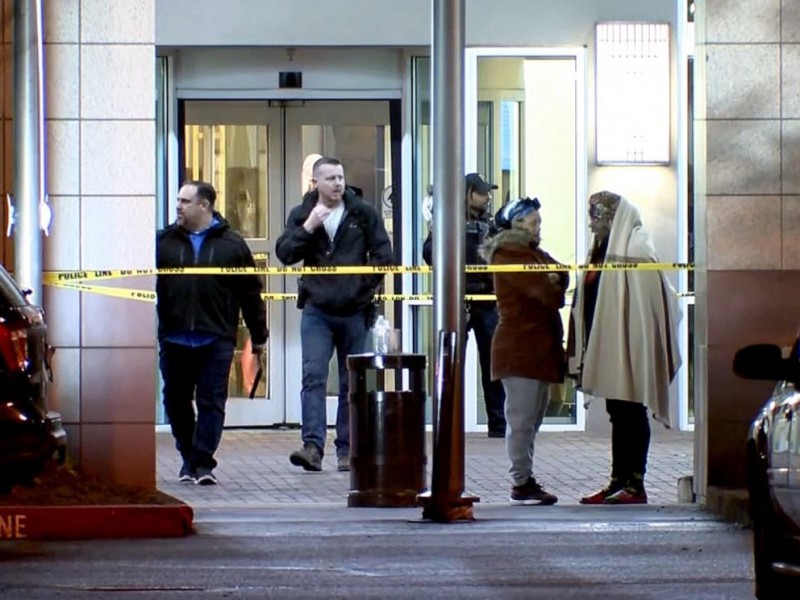Deprecated: Creation of dynamic property ET_Builder_Module_Comments::$et_pb_unique_comments_module_class is deprecated in /home4/readynow/public_html/wp-content/themes/Divi/includes/builder/class-et-builder-element.php on line 1425
Hospitality Active Assailant Incidents
Why the Hospitality Industry Struggles with Active Assailant Incidents
When a first responder arrives at the scene of an active shooter, significant casualties and damage have already occurred. Hotel lobbies, conference rooms, retail, restaurants, and adjoining public spaces are highly vulnerable (e.g., Mandalay Bay, Las Vegas, Oct 1, 2017).
The safety and security of guests should be a paramount concern for hotel operators. However, the unfortunate reality is that the hospitality industry has been slow to adopt comprehensive measures to guard against active assailant incidents. This reluctance stems from various factors including financial considerations, guest experience concerns, and operational challenges. Understanding the underlying reasons why hotel operators have been hesitant to implement robust security measures against active assailants may help to bridge this critical gap.
One of the primary reasons hotel operators hesitate to institute comprehensive security measures is the significant financial investment required. Implementing state-of-the-art security technologies, training staff, and developing emergency response protocols can be expensive undertakings, particularly for smaller establishments or budget-conscious operators. Balancing security expenditures with other operational costs and profit margins can present a challenge, leading to delayed or insufficient security enhancements.
Hotels strive to create a welcoming and pleasant environment for their guests, and stringent security measures might be perceived as intrusive or inconvenient. Implementing measures like metal detectors, bag checks, or visible security personnel may impact the ambiance and sense of relaxation that guests seek during their stay. Striking the right balance between ensuring guest safety and preserving a welcoming atmosphere can be a delicate task, causing hotel operators to err on the side of maintaining a positive guest experience.
Another particular challenge is that hotels are dynamic environments with numerous points of entry including lobbies, restaurants, parking areas, and multiple floors with different access points. These complex layouts pose significant operational challenges when it comes to securing the premises effectively. Hotels have to cater to the needs of various stakeholders, such as guests, staff, suppliers, and emergency responders, which can complicate security implementation. Balancing the need for accessibility with robust security measures requires careful planning and coordination, which may deter some hotel operators from taking action.
Unfortunately, active assailant incidents in hotels can generate substantial negative publicity that can severely impact a hotel’s reputation and business. Hotel operators may fear that publicizing enhanced security measures could inadvertently create the impression that their properties are unsafe, thereby deterring potential guests. This fear can lead to a reluctance to implement visible security measures or share details of security enhancements with the public. However, this approach can be counterproductive, as guests increasingly prioritize safety when choosing accommodations.
Addressing the reluctance of hotel operators to institute measures against active assailants requires a multi-faceted approach beginning with collaboration and expert consultation. Specifically, hotel operators can collaborate with security experts, local law enforcement agencies, and hospitality industry associations to develop comprehensive security guidelines tailored to their specific properties. Expert consultation can help strike the right balance between security and guest experience while identifying cost-effective solutions.
Hotel staff plays a crucial role in responding to emergencies. By providing comprehensive training, hotel operators can equip their employees with the knowledge and skills necessary to recognize potential threats, respond effectively during crises, and assist guests in emergency situations.
Another important aspect is to invest in technology-based security solutions, such as video surveillance systems, access control systems, and emergency communication tools, which can enhance overall security without compromising the guest experience. Integrating these technologies into existing infrastructure can provide real-time monitoring and quick response capabilities.
Finally, hotel operators should communicate their security measures to guests, assuring them that their safety is a top priority. Transparent, proactive communication helps build trust, fosters guest loyalty, and demonstrates a commitment to guest well-being.
While the reluctance of hotel operators to institute measures to guard against active assailants is understandable, it is essential for the industry to address this critical gap in security. By overcoming financial barriers, balancing guest experience concerns, tackling operational challenges, and embracing proactive measures, hotel operators can create a safer environment for guests without compromising the welcoming atmosphere that defines the hospitality industry. By prioritizing security and exploring innovative solutions, hotels can ensure the well-being and peace of mind of their guests in an ever-evolving security landscape.
To learn more about how ReadyGlobal can help your organization, watch our video or contact us at team@readyglobalnow.com.


0 Comments